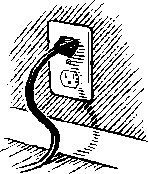The word “Quantum” refers to Quantum Mechanics or Quantum Physics. A quantum is a little packet of energy—what the sun delivers to us incessantly. Quantum Mechanics is the theory of the infinitesimal atomic world—-the theory of what makes up all matter everywhere. The theory of the nature of the universe.
Quantum (published by W.W. Norton) is a novel-like account of a battle between two titans of physics: Neils Bohr and Albert Einstein. When I finished this book, I had a better understanding of a subject I briefly studied as an engineering student forty years ago. I liked this book so much, I wrote the author a snail mail letter congratulating him for his work and thanking him for his effort. There is much to this book and I enjoyed it immensely. However, what fascinated and captivated me most was the nature of the disagreement between them.
The debate between Bohr and Einstein was so profound, so polar opposite, it is difficult to understand how these two remained so far apart on the matter. Bohr believed that there was no reality of an atomic or subatomic world. Quantum quotes him as follows: “There is no quantum world. There is only an abstract quantum mechanical description. It is wrong to think that the task of physics is to find out how nature is. Physics concerns what we can say about nature.” Kumar goes on to say, “For Bohr there was no underlying physical reality that exists independently of the measuring equipment . . . .” What Bohr was saying is that observing an electron makes it real but if you are not observing it, it does not exist.
Einstein, of course, had the 180 degree view: “He based his assessment of quantum mechanics on his unshakable belief in the existence of a causal, observer-independent reality.” “‘What we call science,’ Einstein argued, ‘has the sole purpose of determining what is.’”
There is much heft in this book. Kumar’s detailed bibliography betrays a scholarly approach but a resultant work that is an easy, enjoyable read—a story. There are many other “characters” in this work: Max Planck, Ernest Rutherford, Erwin Schrodinger, Werner Heisenberg, among others. I recommend it highly.
I am not a physicist, and I have no high intellect, but I feel strongly that I should side with one or the other of the combatants. It is difficult for me to acknowledge Bohr’s abstraction of the atom. I cannot believe that an object, infinitesimally small though it may be, only comes into existence by virtue of my observance of it. I cannot fathom that deep an abstraction.
I take Einstein’s side. If I am sitting at a table, I can grab it, lean on it, pound it. It is a physical reality. It has weight, dimensions, volume and it is visually observable. I know it is made up of atoms. And I know those atoms are made up of subatomic particles. Therefore, the table is observable because it exists independently of me. And, ergo, it follows that all of its component parts—-molecules, atoms, protons, neutrons, electrons—-also exist, whether or not I observe them. If I never look at the table, it still exists. And looking at it, does not cause it to exist.
Subscribe to:
Post Comments (Atom)




Thanks for the review. I will pick up a copy at my library and comment back after I read it.
ReplyDeleteReally good review. I am going to give this a read.
ReplyDeleteI enjoy your book reviews!
ReplyDelete